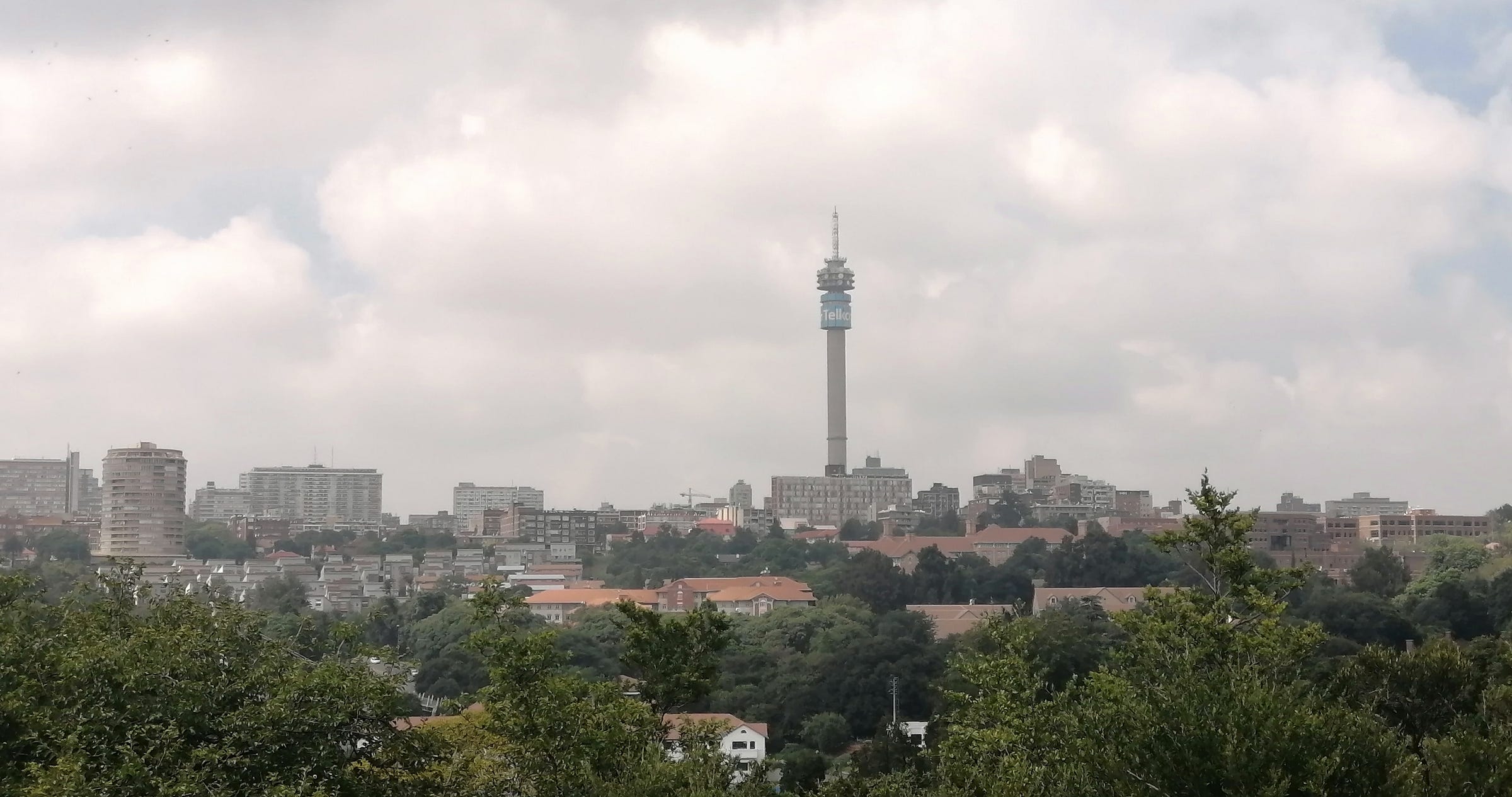Trust in Transition #7
Insights on Fiscal Policies, Digital Security, and Political Trends in Africa
Welcome to the July edition of Trust in Transition. This monthly newsletter, compiled by WISER scholars, is your gateway into finance, technology, and trust in Africa. Each month the Substack features WiSER scholars unpacking the current events and stories shaping their research.
WiSER on the move: June Recap🌍


Doctoral Fellow Caroline King was in Paris, France for a Summer University hosted by H-Africa focusing on “Mobility in the History of Africa: New Approaches to the ‘Mobility Turn’”
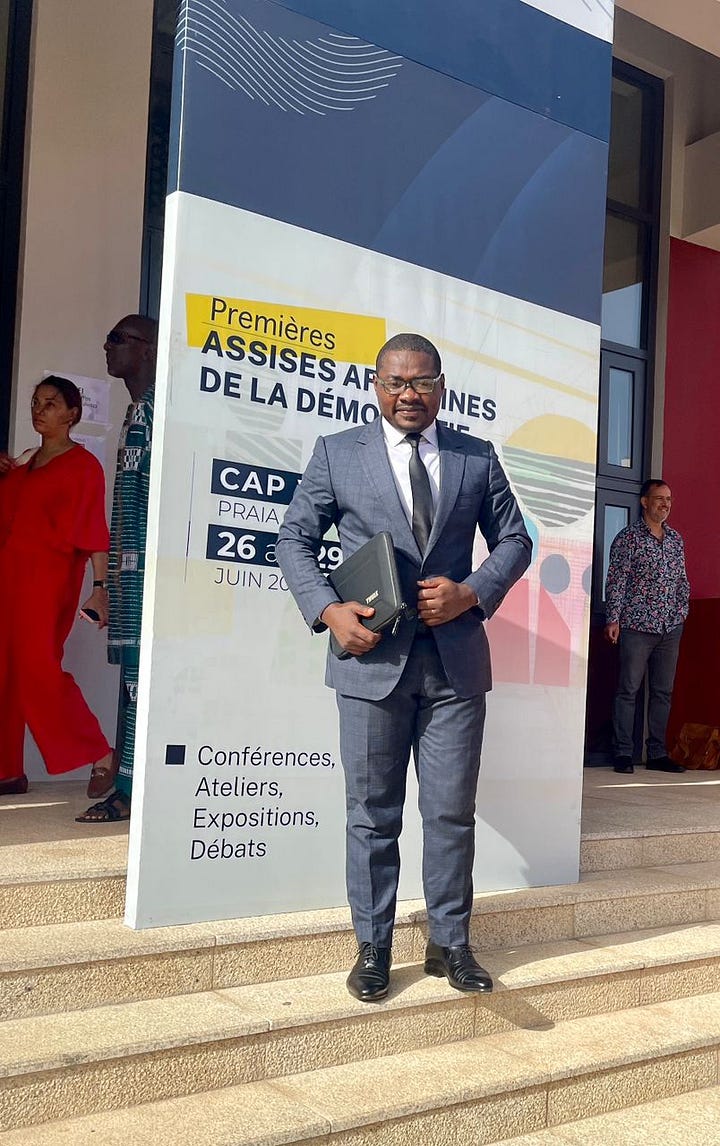
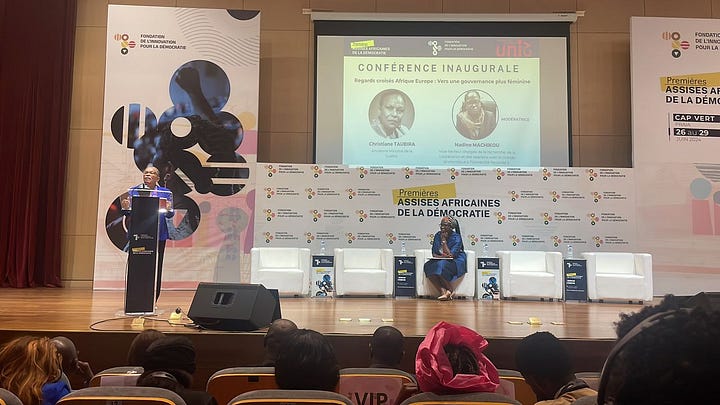
Postdoctoral Fellow George Eyenga was in Praia, Cape Verde, to participate in the First Conference for Democracy organized by the Foundation for Innovation in Democracy, led by Achille Mbembe.
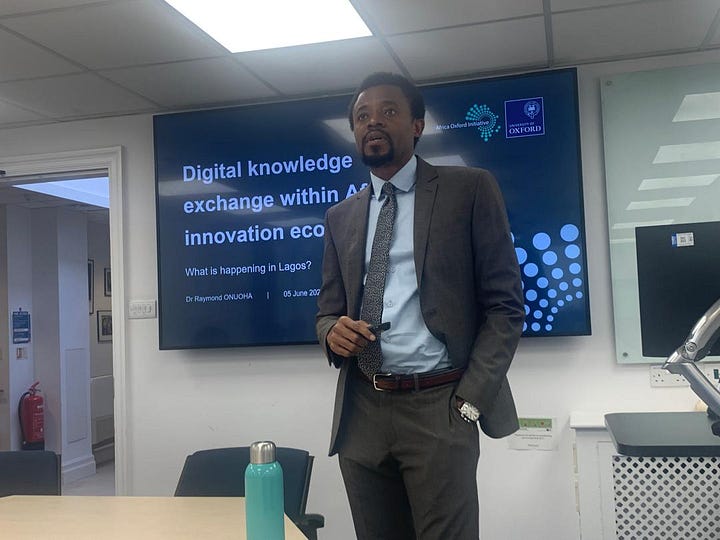
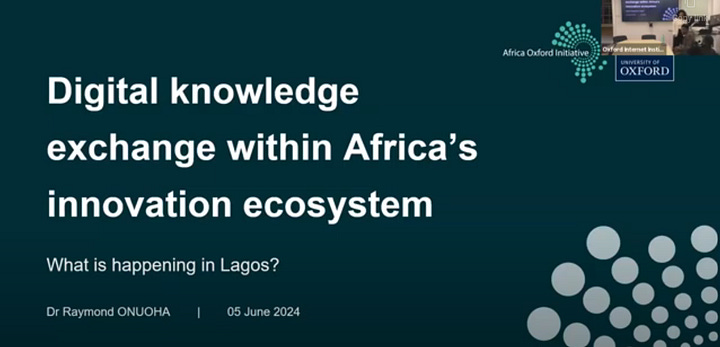
Postdoctoral Fellow Raymond Onuoha gave a Seminar presentation Titled - Digital knowledge exchange within Africa’s innovation ecosystem – What is happening in Lagos? At the Oxford Internet Institute, University of Oxford.
In this edition, Wiser Trust scholars and affiliates are reading the following:
“Is this the 1980s all over again?” Keith Breckenridge | Professor | Trust
“A New Era?” Laura Phillips | Researcher | Trust
“Navigating the Role of Artificial Intelligence in African Electoral Processes” Georges Eyenga | Postdoc Fellow | Trust
“Trust in nascent digital ecosystems: data security and privacy regulation enforcement and compliance challenges in Nigeria” Raymond Onuoha | Postdoc Fellow | Trust
“Global Political Shifts: Voters Seek to Rebuild Trust in Institutions” Fatima Moolla | Doctoral Fellow | Trust
“Trust and Banking Crisis in Nigeria: The Heritage Bank story” Tunde Okunoye | Doctoral Fellow | Trust
“Voter Registration under Way” Caroline King | Doctoral Fellow | Trust
This edition explores scholarship on a range of critical topics, including fiscal policies, Chinese influence in Africa, AI in elections, data security, and political shifts. From analysing harsh fiscal measures in Nigeria and Kenya to examining the significant drop in Chinese lending to Africa, each contribution offers insights into Africa's socio-economic landscape. This month Wiser scholars are also reading about the potential and risks of AI in African elections, the challenges of data security in Nigeria, and the impact of recent global crises on voter behaviour and trust in institutions.
✏️ Contributions:
“Is this the 1980s all over again?”
Submitted by Keith Breckenridge | Trust
The Financial Times is worried about fiscal policies aimed at strengthening debt repayments in Nigeria and in Kenya. While it does seem that both Ruto and Tinubu have adopted unnecessarily brutal fiscal strategies — abolishing the fuel-subsidy-welfare system in Nigeria and basic goods and subsistence transactions in Kenya — the bigger problem may be the absence of an orderly system of bankruptcy for sovereign debtors in the New York courts.
“A New Era?”
Submitted by Laura Phillips | Researcher | Trust
Chinese Lending to Africa Plunges to Twenty Year Low
The spectre of Chinese influence in Africa has loomed large for many years. As Deborah Brautigam suggested in her 2011 book, The Dragon's Gift, China has often been seen as a 'rogue donor,' relying on exploitative labour and aggressive extractivism on the African continent. Though Brautigam offers a far more nuanced picture of China's involvement in Africa, we might need, yet again, to rethink China's goals on the continent. For the first time in two decades, China's lending to Africa has dropped and it seems Beijing is increasingly favouring smaller, greener projects.
“Navigating the Role of Artificial Intelligence in African Electoral Processes”
Submitted by Georges Eyenga | Postdoc Fellow | Trust
This text discusses the impact of artificial intelligence (AI) on electoral processes in Africa. It acknowledges that AI is already widely used in various African countries for tasks such as voter data analysis, managing chatbots for electoral engagement, voter authentication, and detecting cyber threats. The text explores both the potential benefits and risks associated with the use of AI in these contexts. However, it is somewhat uncritical of the ethical and technical challenges mentioned in the text. For instance, inadequate data protection and concerns about voter privacy are serious points of concern. Moreover, dependence on imported AI technologies could compromise the sovereignty of African states and may not meet specific local needs. It also highlights that AI can be used for disinformation and electoral manipulation purposes, as seen in certain countries.
“Trust in nascent digital ecosystems: data security and privacy regulation enforcement and compliance challenges in Nigeria”
Submitted by Raymond Onuoha | Postdoc Fellow | Trust
BVNs, NINs, Other Private Information of Nigerians Available on AnyVerify for Just N100
With increasing volumes of data being collected and processed by a host of public institutions in Nigeria – chiefly the National Identity Management Commission (NIMC) and the Central Bank of Nigeria (CBN, ensuring consumer data privacy becomes a constant challenge. Data breaches are not only harmful to businesses and organizations but also affect citizens, who often suffer financial and emotional damages, ultimately leading to a loss of confidence and trust in the datafied ecosystem. While Section 30 and 39 of The Nigeria Data Protection Act (NDPA) 2023 prescribes that all relevant agencies of government have a duty to implement appropriate technical and organisational measures to ensure the security and integrity of citizens’ sensitive personal data, this legal provision have not been sufficient to deter private websites from obtaining and selling sensitive citizen data from these data controlling agencies. According to this recent report, “only three months after FIJ exposed XpressVerify, a private website selling the Nigerian identification data, private website AnyVerify has been found trading Nigerian bank verification numbers (BVNs), among other sensitive citizen data.” This development highlights the challenges associated with data security and privacy regulation enforcement and compliance in the cultivation of trust within fledgling digital ecosystems such as in Nigeria.
“Global Political Shifts: Voters Seek to Rebuild Trust in Institutions”
Submitted by Fatima Moolla | Doctoral Fellow | Trust
The world of politics is experiencing significant upheaval, with recent election results reflecting changing public sentiment. In France, no party secured a majority, leading to a hung parliament and challenging President Emmanuel Macron. The U.K. saw Britain swing to the centre-left in a historic landslide, signalling growing public discontent and a desire for change amidst the Russia-Ukraine war and the ongoing Israel-Palestine conflict, both of which have had profound impacts on global politics. South Africa's African National Congress (ANC) also experienced a historic loss, failing to secure a parliamentary majority for the first time in 30 years and forced to seek coalition partners to form a government. This shift also illustrates a significant change in voter behaviour and a potential turning point in South African politics.
The recent election outcomes in France, the U.K., and South Africa may be more than just isolated political shifts. The global crises have exacerbated public distrust in traditional political structures. However, these election results might also indicate a growing desire among voters to rebuild and strengthen trust in their institutions. By electing new leadership and pushing for coalitions, voters are signalling a demand for more transparent, accountable, and responsive governance. As we move forward, it will be crucial to monitor how these political changes unfold and what they mean for the global political landscape. The rebuilding of trust in institutions is a complex and ongoing process, but these recent developments offer a glimmer of hope for a more stable and cooperative future.
“Trust and Banking Crisis in Nigeria: The Heritage Bank story”
Submitted by Tunde Okunoye | Doctoral Fellow | Trust
Nigeria’s Heritage Bank License Revoked After New Capital Rules
While many experts frame questions of Trust in terms of technology infrastructure such as biometric national identification schemes, distributed ledger technologies, and credit bureaus, there is a significant body of work (for example North, Acemoglu) situating Trust as a function of the quality of institutional or corporate governance. And those who shape those indices are the political and economic elite. So in a sense, Trust lies at the intersection of elite consensus.
Take the case of banking crises spawned by bad corporate governance practices, or higher up at the level of a nation’s central bank. The latter has been the case in Nigeria recently, with the 8 year tenure of Governor Godwin Emefiele at the helm of Nigeria’s central bank triggering an unprecedented economic downturn. In a bid to arrest the economic downturn in Nigeria, the new central bank governor Mr Olayemi Cardoso had ordered a raft of economic reforms, which included consolidation of the banking sector. However in that cauldron called bank consolidation – mergers, acquisitions, equity sales etc, smaller, feebler banks get exposed and thrown to the sharks.
That, in a nutshell, is the story of Nigeria’s Heritage Bank. Banks which might have otherwise thrived as viable and useful regional banks serving a niche of the market are suddenly required to “consolidate” to become “global”. Many do not survive it.
“Voter Registration under Way”
Submitted by Caroline King | Doctoral Fellow, Trust Project
3-week biometric voter registration on in Ghana amid opposition hullabaloo
Ghana’s Election Commission (EC) launched another voter registration initiative in light of the country’s upcoming elections at the end of the year. This should give citizens that were up to now unable to register, as well as Ghanaians who recently turned 18 the chance to register to vote. The EC’s representative noted that teams were deployed to multiple hard-to-reach-areas and to all 268 voting districts in the country, manned by over 3000 staff.
Although the push to use the GhanaCard as the only form of identification verification to register, the EC also accepts passports, or in cases where neither document is available, two individuals may vouch for a person wanting to register. This news confirms that once again, the authority of the GhanaCard is undermined, as it was promoted as the sole form of identification verification for voter registration. But, the alternative form of verification through two witnesses also shows the EC’s awareness around issues of identity documents that still persist in Ghana, thus making the right to vote accessible to all. This might be a chance to also register and issue a new identification document like the GhanaCard to unregistered Ghanaians, killing two birds with one stone.
Trust in Transition, is a Substack exploring the intricate interplay between trust, finance, and societal evolution within the African context. This space serves as a lens into the fascinating dynamics of trust infrastructures, financial landscapes, and their transformative impact on Africa's economic pathways.
About the Trust Project:
WISER is pleased to announce a new, long-term research project into African Trust Infrastructures. With generous support from Standard Bank we will be hosting a new doctoral research program examining the development of digital population registration systems, and their effects on institutions.
About WiSER:
As a part of The Witwatersrand Institute for Social and Economic Research (WiSER), our mission is to spotlight African scholarship, dissecting the nuances of societal transitions, financial evolution, and trust frameworks. Established in 2001, WiSER has been at the forefront of interdisciplinary research, delving deep into the humanities and social sciences in South Africa.





